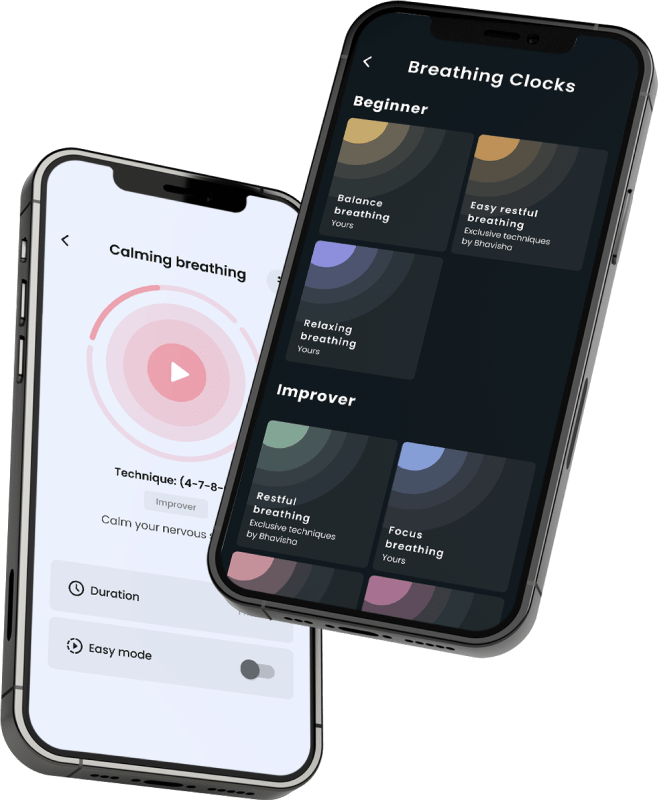Does Stress Make You Tired?

We all get stressed from time to time. In small doses, it can be manageable and even quite motivating. However, chronic stress has a huge impact on our physiology and mental health. From anxiety to fatigue and even heart issues, stress can take over our nervous system and turn mental tension into an amalgamation of ailments.
Stress is generally described as a feeling of mental strain or tension that is caused by various demanding life circumstances.
We all have a different tolerance to stress, but its effects are widely documented and concerning for healthcare providers. In fact, the American Institute of Stress reported that 77 per cent of Americans experience stress that affects their physical health.
Effects of Stress on Your Body
Anxiety and chronic stress cause the hormones in our brain and body to alter, with some going into overdrive. For example, chronically raised cortisol levels can sap our energy levels, causing fatigue and emotional exhaustion. It can also have a heavily negative impact on our immune system and internal organs.
This is often a contributor to the onset of some diseases and can worsen pre-existing conditions. Studies on people with type 2 diabetes found that stress hormones raised their glucose levels, increasing the likelihood of hyperglycemia and diabetic coma. Other diseases that can be caused or worsened by stress include heart disease, asthma, and Alzheimer's. When taking into account the prevalence of stress, many doctors believe that by treating it on a societal level, we can vastly improve healthcare in a preventative way.
Stress can come from a variety of factors, often in our careers and at home. In the United States, an overwhelming amount of people report stress in relation to money. Similarly, in the UK, 27% of respondents to one study reported feeling stressed every single day. For many people, it feels unavoidable but it is something that acutely affects our relationship with ourselves and others.
Financial Pressures
Often, financial troubles cause issues with family life as well as a person's self-esteem. The financial pressure of raising children often impacts a person’s parenting and family relations, causing a lasting effect on the home’s psychological climate. Based on data from the Federal US Government, married couples earning between $60,000 to $105,000 tend to spend an average of $250,000 on caring for their child from birth to 17 years old. Bear in mind that figure does not include higher education costs! The pressure of meeting these demands can create such a level of anxiety that many young people are deciding not to become parents at all.
Work Stress
Another very common cause of high stress is an unhealthy or overly-demanding office environment. There are variety of factors that can contribute to office stress: lack of influence, unclear expectations, lack of support, dysfunctional dynamics, and high workload can overload people to the extent of burnout. In one particularly damning study, 40% of workers described their work as very or extremely stressful, and only 6% reported not feeling stressed at work. When we think about how much of our waking lives are spent working, those figures bear a worrying message about modern life.
The term "burnout" has been used to describe the tiredness that comes from working. Work burnout is a type of job stress in which a person's physical or emotional exhaustion is accompanied by a sense of low worth and personal self- identity loss.
World Events
Big changes on a personal scale or large world events can equally affect a person's emotions. One of the main issues we are all facing at the moment is life in a time of great uncertainty. Covid-19 has shaped the way we live day-to-day, as well as our psychological health. In one survey from June 2020, 13% of adults reported newly emerging mental health problems due to the pandemic. There was even a new term created to describe the effect of lockdown on our energy levels: Lockdown Fatigue. This concept is defined as the emergence of at times paralysing feelings of apathy and lethargy in the wake of yet another lockdown.
Climate Change
Not surprisingly, climate change is also becoming a huge threat to mental health. One medically reviewed website quotes psychiatrist and behavioral scientist Elissa Epel divulging that climate change creates a "complex conglomeration of aspects of emotional distress, including depression, anxiety, and hopelessness". When we feel disempowered to act upon our fears, we can feel complacent and depressed.
Lack of Coping Mechanisms
One huge issue for a healthcare provider is that stress has become so normalized that most of us don't know how to eradicate it. Often, people don't have the coping skills to manage so many demands in different areas of life, and this can result in nervous system dysregulation, mental health problems, and lack of sleep, and of course, fatigue.
Stress Causes Apathy
Long periods of stress and anxiety can eventually cause a feeling of apathy. This is often because helplessness arises when there is no perceivable solution to these negative emotions. Unfortunate events in life end up seeming unavoidable and impossible to manage, causing a person to question their strength and ability to take care of themself.
People may also be overwhelmed by the physical symptoms of stress, such as fatigue, muscle aches, and gastrointestinal problems getting in the way of them living their life. This may end up causing a lack of motivation and disengagement from regular enjoyable activities like socializing and pursuing hobbies.
Apathy is caused by anxiety, which is due to a reduction of serotonin. As anxiety affects the brain's serotonin production, it can create a domino effect leading to depression and eventually a feeling of apathy. Apathy tends to co-occur with fatigue, which results in a person becoming incapable of working through stressful situations. In this way the negative cycle reinforces itself.
Insomnia is another condition related to anxiety. Sleep problems have a huge impact on a person's lifestyle and increase the risk of some issues such as memory problems, high blood pressure, and fatigue. The average adult sleeps 7-9 hours per night, which involves going through 4-6 sleep cycles. Often, the sleep cycle is broken when a person is suffering from anxiety, as they may take much longer to fall asleep and easily wake several times throughout the night. Some people experiencing stress wake up still feeling a sense of fatigue and some feel they need excessive amounts of sleep each day to recover.
Sleep issues are classed as comorbid with anxiety and depression, meaning that insomnia very often causes, or is caused by, some mood disorders. A study in Korea on sleep and anxiety observed that 47.6% of individuals with high risks for insomnia also experienced anxiety or depression. This suggests that even those without anxiety in the first place can develop it following a period of insomnia.
Shift Work and Stress
Many people have experienced the dysregulation resulting from working shifts. Reasons for this include disruption to our circadian rhythm and a lack of daily routine. Our circadian rhythm is the way the body and brain rely upon daylight. It is characterized as physical, mental, and behavioral changes that follow a 24-hour cycle. Shift work is a contributor to stress as our energy levels become disrupted and irregular when we need to keep up with a constantly changing schedule. This has a knock-on effect on our health and is another huge cause of fatigue.
The body is programmed to sleep when there is no more daylight reaching our eyes. When a person reverses that cycle by working night shifts and resting through the day, they will often experience symptoms of fatigue and exhaustion. Because of extreme tiredness, they can make counteractive lifestyle choices such as relying on caffeine to maintain higher energy levels when working. This again can create more nervous system dysregulation as the effects of caffeine are well-documented to increase nervousness.
Overall, shift work can gradually deteriorate a person's health and contribute to a feeling of anxiety. You can reach out to your healthcare provider for tips on how to maintain a healthy sleep routine. Recommendations from your doctor may include taking low-dose melatonin supplements before a set bedtime and trying to maintain a set bedtime regardless of changing shift patterns (where possible).
Ways to Combat Tiredness
Many of us feel stuck in our daily routine, but there are many things we can do to eliminate stressors. By making certain lifestyle changes where possible, you can greatly improve daily stress levels.
Eliminate Stressors.
Seeking guidance from professionals can be a great way to start. A trained therapist, GP service, financial advisor, or even a friend or family member can provide key input on ways to improve your life.
Asking for a loved one to take care of the kids once in a while can provide a nice break for stressed parents. It can create more time for connecting with a partner or valuable self-care.
Talk to a Therapist.
A therapist can teach grounding techniques or cognitive-behavioral techniques so you can cope best in adverse situations. A therapist can also advise clients who have a specific mental health condition on how to best cope with symptoms.
Limit Alcohol and Caffeine.
Despite caffeine providing a boost to your daily routine, it does matter how much you consume throughout the day. Up to 400 milligrams (mg) of caffeine is considered safe for most adults, but if you suffer from anxiety it is recommended to reduce caffeine intake as much as possible. Just as alcohol can provide temporary relief from stress, it is recommended to limit intake to no more than 14 units per week. Alcohol contributes to a variety of health issues and increases the likelihood of depression.
Slow Down.
Try reducing your self-expectations to more practical and necessary goals. You could also incorporate a day of rest into your week when you don't engage with technology. Instead, focus on calming activities such as journaling, resting, and reflecting on your experiences within the previous week.
Try eating healthier.
Try your best to eat a diet rich in nutrients. Avoiding sugary or heavily-processed foods can help to regulate energy levels and reduce tiredness. The microbiome in the gut has a large effect on our mood, especially as gut bacteria manufacture about 95 per cent of the body's supply of serotonin.
Practice mindfulness.
Mindfulness is the practice of being fully present, aware of our current position and activities, without getting overly emotional or overwhelmed by what's going on around us. Mindfulness can improve mental health by reducing rumination on the past or future. It has been shown to improve symptoms of stress and improve overall wellbeing by promoting non-judgemental observation of emotional reactions. Mindfulness can be a precursor to developing long-lasting coping strategies.

